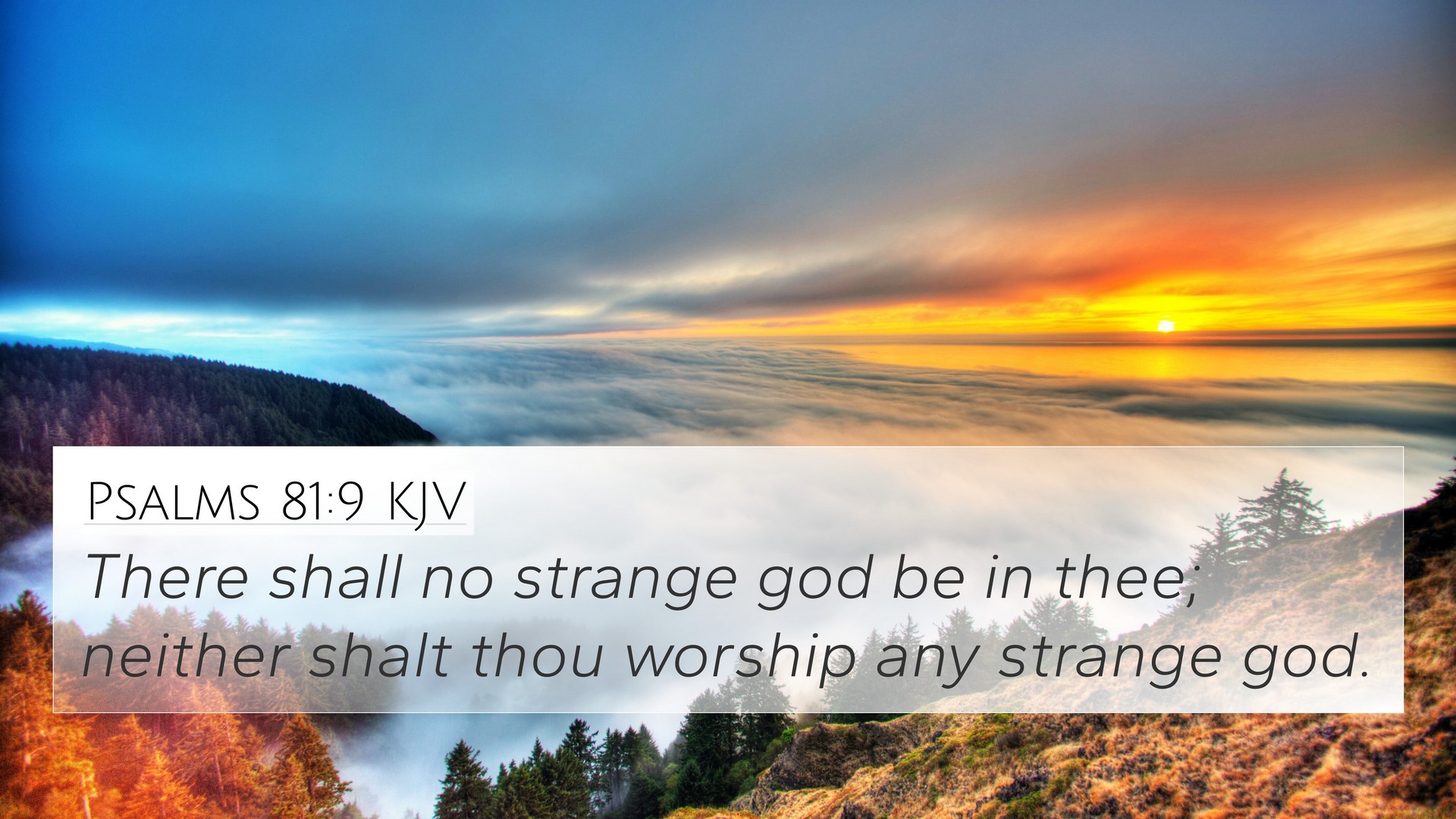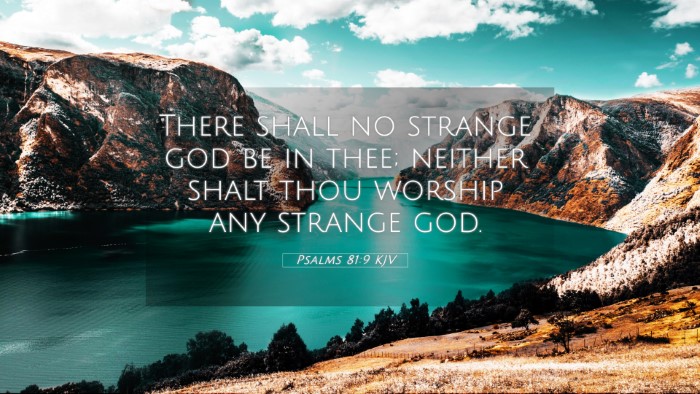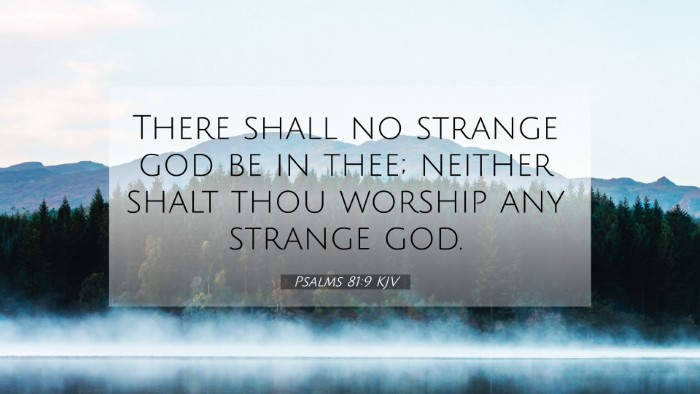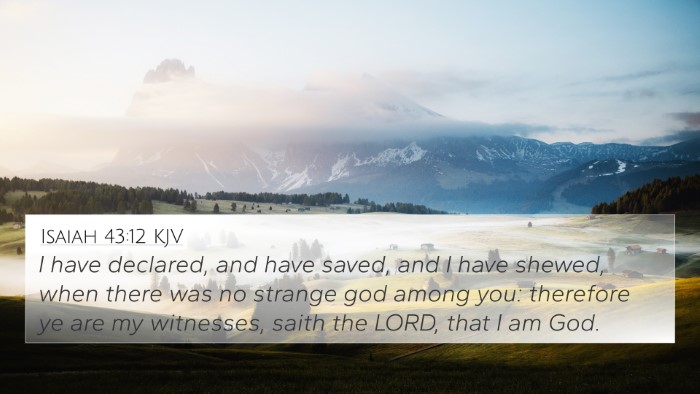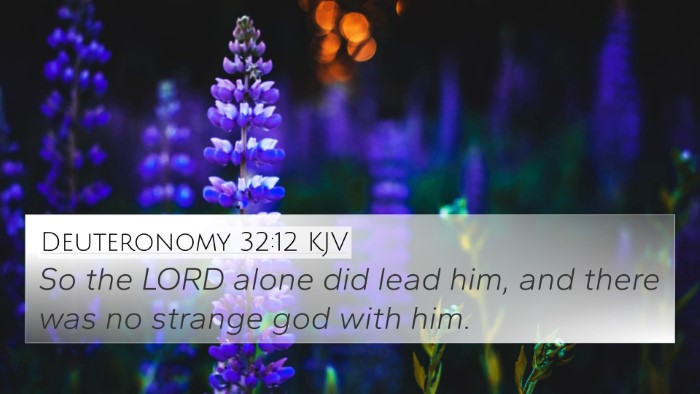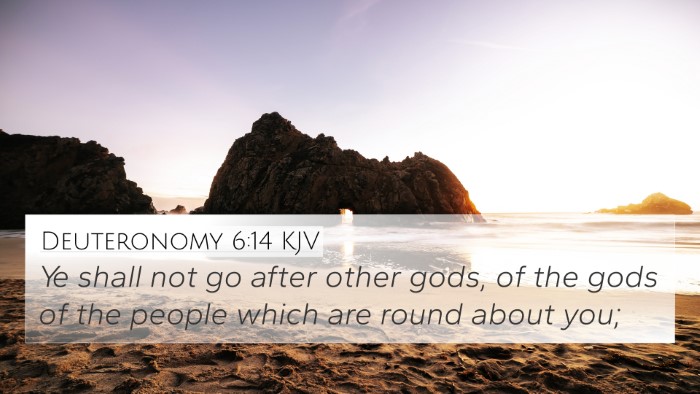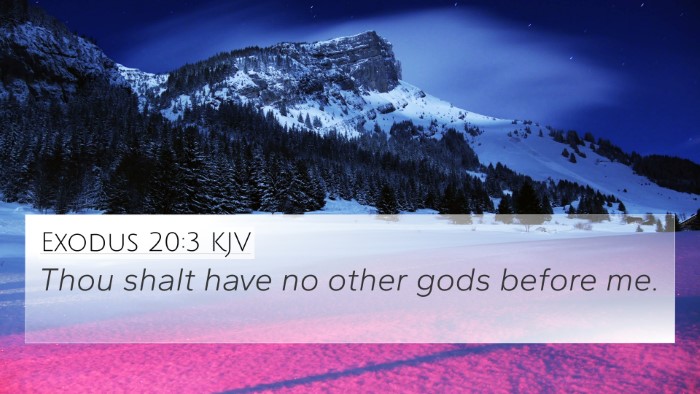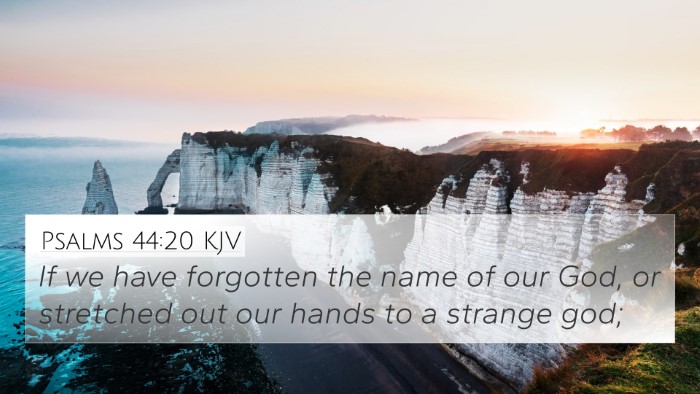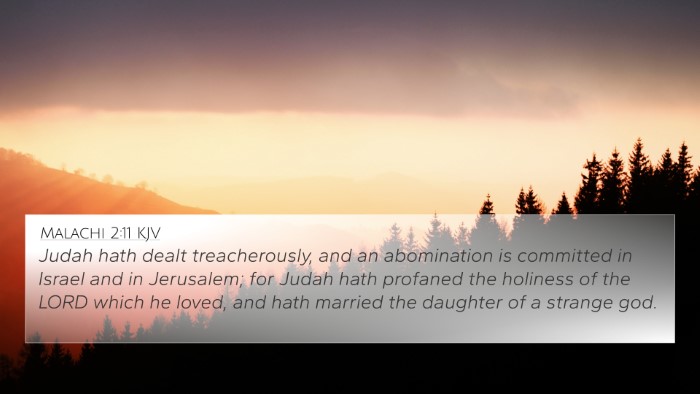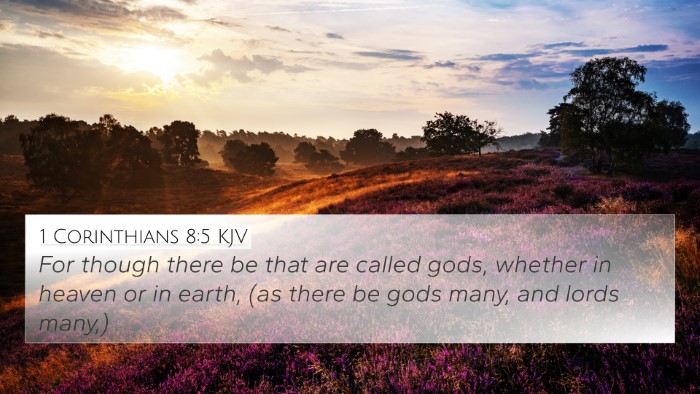Psalms 81:9: Understanding and Interpretation
Psalms 81:9 states:
"There shall no strange god be in thee; neither shalt thou worship any strange god."
This verse encapsulates a significant warning against idolatry, emphasizing the exclusive worship of the one true God. Below, we will explore insights from noted public domain commentators and provide an enriched understanding of this scripture.
Summary of Verse Meaning
This verse serves as a reminder and a commandment from God, urging His people to avoid the temptation of worshipping foreign deities. It illustrates the importance of loyalty and faithfulness in the relationship between God and His followers.
Insights from Commentators
-
Matthew Henry:
Henry remarks that the worship of strange gods leads to a departure from faithfulness to God and that there exists a natural tendency within the human heart to stray towards idolatry. He emphasizes the need for God’s chosen people to resist such influences and remain steadfast in their devotion.
-
Albert Barnes:
Barnes discusses the inherent insistence of God on being worshipped in spirit and truth, without the pollution of idolatrous practices. He explains that this call to purity in worship reflects God’s holiness and His demand for His people's loyalty.
-
Adam Clarke:
Clarke points out the historical context of this verse, noting how the Israelites were often tempted by the religions of neighboring nations. He elucidates that this verse serves both as a commandment and a protective measure against the corrupting influence of pagan practices.
Bible Cross-References
To fully appreciate the weight of Psalms 81:9, we can identify several cross-references that reinforce its message on worship and fidelity to God:
- Exodus 20:3: "Thou shalt have no other gods before me."
- Deuteronomy 5:7: "Thou shalt have none other gods beside me."
- Isaiah 45:22: "Look unto me, and be ye saved, all the ends of the earth: for I am God, and there is none else."
- 1 Corinthians 10:14: "Wherefore, my dearly beloved, flee from idolatry."
- James 4:4: "Ye adulterers and adulteresses, know ye not that the friendship of the world is enmity with God?"
- Revelation 21:8: "But the fearful, and unbelieving, and the abominable, and murderers, and whoremongers, and sorcerers, and idolaters, and all liars, shall have their part in the lake which burneth with fire and brimstone."
- Micah 4:5: "For all people will walk every one in the name of his god, and we will walk in the name of the LORD our God forever and ever."
- John 4:24: "God is a Spirit: and they that worship him must worship him in spirit and in truth."
Thematic Connections
Psalms 81:9 pathways into a broader thematic discourse within Scripture regarding idolatry and worship. This can be explored as follows:
-
Exclusive Worship: Connecting this verse to the commandments in Exodus and Deuteronomy highlights the theme of exclusive worship throughout the Scriptures.
-
The Nature of God: References from Isaiah and John depict the nature of God and His desire for authentic worshipers.
-
Consequences of Idolatry: The warnings found in Revelation and 1 Corinthians stress the dire consequences of straying from loyal worship.
Practical Applications
Understanding Psalms 81:9 provides insights into how contemporary believers can apply its vital lessons:
- Focusing on True Worship: Engage in practices that deepen one's relationship with God, avoiding distractions from secular influences.
- Identifying Modern Idols: Assess personal life for potential idols (e.g., wealth, success, relationships) that may impede dedication to God.
- Encouraging Others: Share the importance of fidelity to God within community and fellowship groups.
Conclusion
Psalms 81:9 serves as a critical verse highlighting the need for exclusive devotion to God, reflecting themes of fidelity, true worship, and the dangers of idolatry. By examining this verse alongside its cross-references and thematic connections, one gains a deeper understanding of its significance in both the Old and New Testament contexts. Utilizing tools for Bible cross-referencing can facilitate further exploration of such themes, enriching one's spiritual journey.
